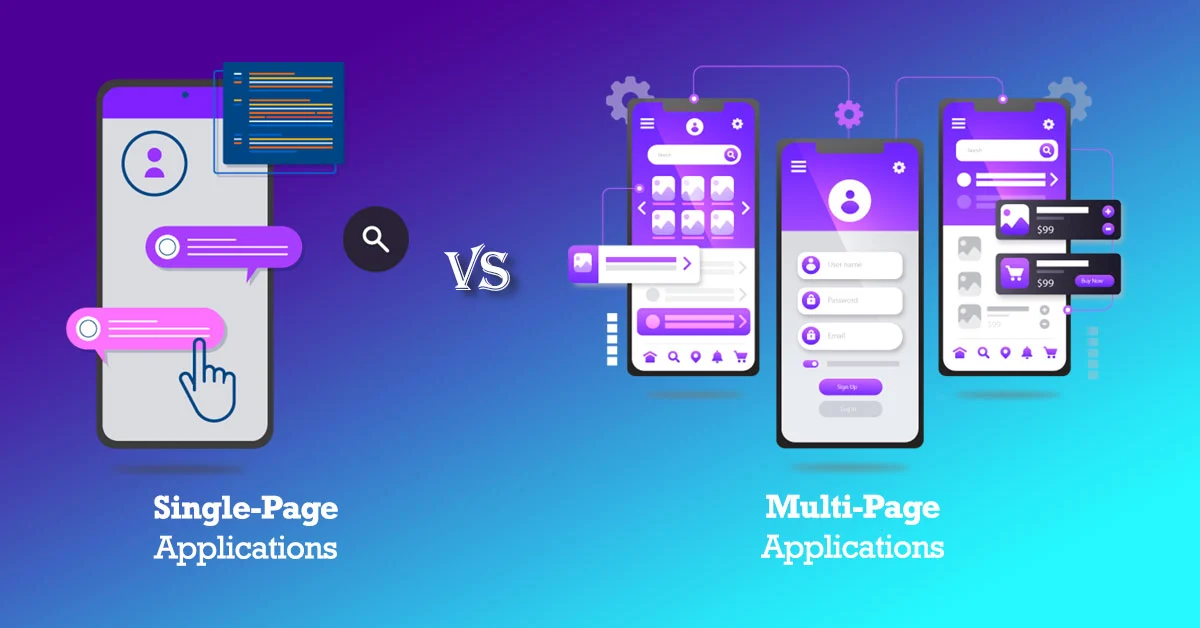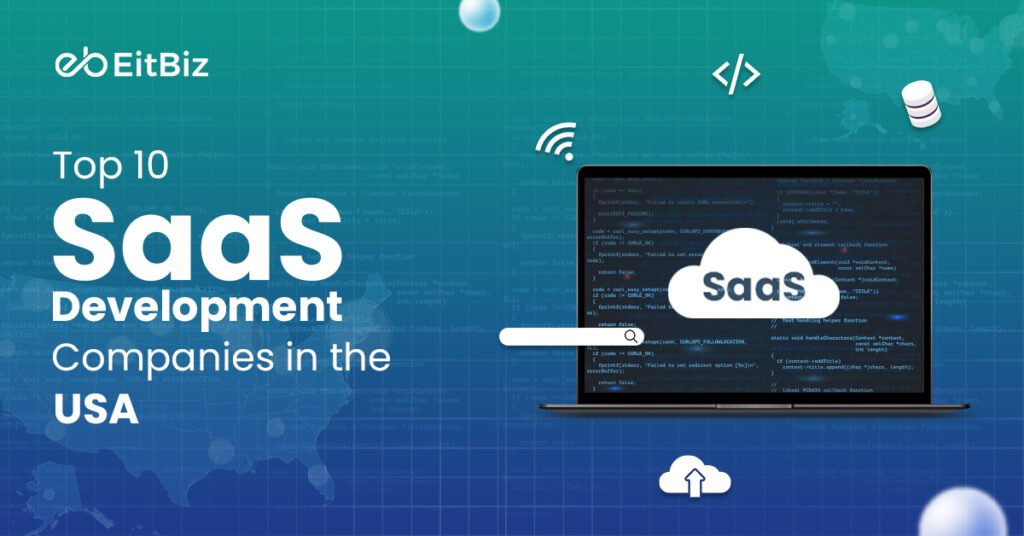Choosing the right type of framework for your web-based project is absolutely crucial for your business’s growth. If you are going to invest in a web application, it is important for you to learn about it thoroughly. Web applications are extremely efficient when it comes to functionality. Web applications can help a business grow by enhancing the way a business communicates with its consumers and target audience. If you need a web app developed for your business, you will have to choose between SPAs and MPAs. In this blog, we will dive deep into single page application vs multi page application to understand which might be the best for your business.
-Single-Page Application
If you are wondering what S.P.A means, here’s the answer to your doubt: Single-page applications are web applications with only one functioning page. This application does not require the user to reload it while operating it. Some examples of single-page applications are Gmail, Google Maps, Twitter, Facebook, etc. If you are wondering how a single-page application works so flawlessly, it is because it does not take the user to a new page. Instead, it updates the existing page when the user requests a new resource.
–Multi-Page Application
Multi-page applications are traditional web applications with more than one page. In this web application, when the user requests a new page, the entire page is reloaded. These applications are built through languages such as PHP and ASP. NET, etc. Multi-page applications are beneficial for businesses that require simple web applications. eCommerce, forums and blogs are perfect examples of these web applications. The two most prominent organizations that have multi-page applications are Amazon and eBay.
Advantages & Disadvantages Of Single Page Applications
Undoubtedly, single-page applications load quicker than multi-page applications and are more flexible than traditional web applications. Single-page applications have many advantages that make this kind of web application more efficient than others. Still, a significant number of disadvantages also put the web application into question.
–Advantages
Speed:- As mentioned above, one of the most important advantages of single page applications is its immaculate speed. Single-page applications load quickly and work better than multi-page applications.
Mobile-friendly:- The number of mobile users has increased significantly in the past few years. Single page applications are highly mobile-friendly and can be built easily.
Increased Conversion:- With single-page applications, everything comes down to flexibility and speed. Single page apps immensely help businesses grow with less loading time. This ensures an increase in the conversion rate of a business.
–Disadvantages
Security Concern:- Even though single page applications load very fast, there are a few security concerns. Due to the security issues, cross-site scripting attacks can happen easily.
SEO Issues:- One of the most significant disadvantages of single page application is carrying out its SEO optimization. This makes it really hard for businesses to scale through a single page application.
Scalability:- Single page apps are not scalable because the loading time of the pages increase as soon as more content is added to the page.
Advantages & Disadvantages Of Multi Page Applications
Just like single-page applications, multi-page applications also have several advantages and disadvantages. Before the advent of SPAs, multi-page applications were highly preferred by businesses. Here are a few advantages and disadvantages of multi-page applications.
–Advantages
SEO-friendly:- Multi page applications are a great choice for SEO optimization. They are easy to optimize and get ranked greatly through SEO practices. As compared to SPAs, Multi page applications have more scope of getting ranked.
Scalability:- As the name suggests, multi page applications have more than a single page in it and allows you to add as much content as you want. This is why MPAs are easy to scale.
Analyze:- Along with SEO, multi page applications are also a great friend of Google Analytics. Applications built through MPA framework are easily integrated with Google Analytics.
–Disadvantages
Slow Loading Speed:- One of the most major disadvantages of multi page applications is its slow loading speed. Unlike single page applications, MPAs load slowly. Its pages also reload every time a user requests a new resource.
Slow Development Speed:- One of the many reasons why SPAs are popular is due to their quick development time. On the other hand, it takes a lot of time to develop multi-page applications.
Security:- Another disadvantage of multi page applications is it is hard to maintain. Developers constantly have to make sure that all the pages of the application are secure, which is a tiresome process.
Which One is Better?
Now that we have gone through the advantages and disadvantages of both SPAs and MPAs, it is time to decide which is better. SPAs are designed to load a single HTML page and dynamically update its content as the user interacts with the application. SPAs provide a smoother and faster user experience, as they don’t require the entire page to be reloaded each time a user acts. SPAs are ideal for applications requiring real-time updates or user interaction, such as social media sites, email clients, and productivity tools.
On the other hand, MPAs are more traditional web applications that load a new HTML page each time a user clicks a link or performs an action. MPAs are easier to develop and maintain, as they don’t require as much client-side code or complex routing logic. MPAs are ideal for content-driven websites, such as blogs or news sites, focusing on delivering static content to users.
Ultimately, the decision of whether to use an SPA or MPA depends on the project’s specific requirements. Factors such as the type of content, the amount of interactivity required, the need for real-time updates, and the development team’s skills and preferences will all play a role in determining which approach is best.
Author
-

Vikas Dagar is a seasoned expert in the field of web and mobile applications, boasting over 14 years of experience across a multitude of industries, from nimble startups to expansive enterprises. Visit Linkedin
View all posts


![How to Launch Your Own OTT Streaming App [Tech Stack + Cost]](https://www.eitbiz.com/blog/wp-content/uploads/2025/07/How-to-Launch-Your-Own-OTT-Streaming-App-Tech-Stack-Cost-1024x536.jpg)

